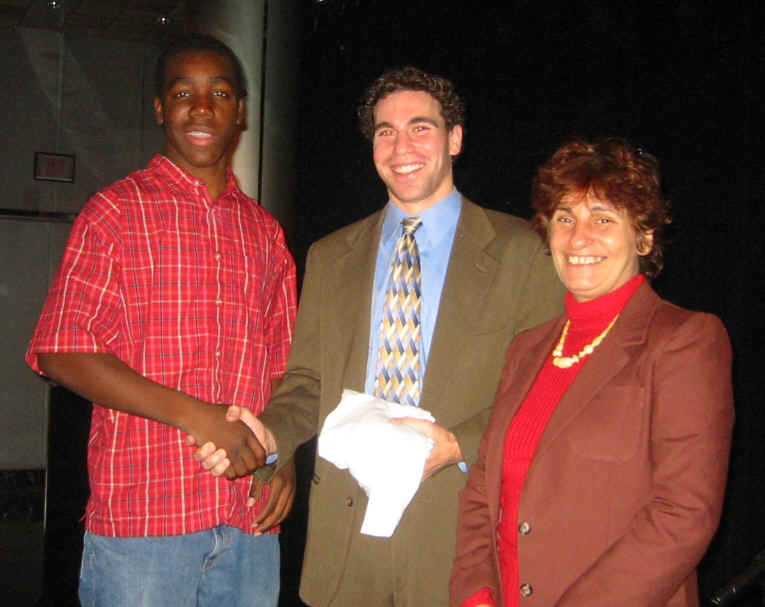
A Trip To The Canadian Embassy

HHS Political Science students visited the Canadian Embassy on November 25, 2003. Embassy officials Jeremy Adler and Simone Sitruk, shown here with Ugo Eze, presented a film on the purpose and architecture of the embassy and then answered student questions. More pictures, questions and answers are below.
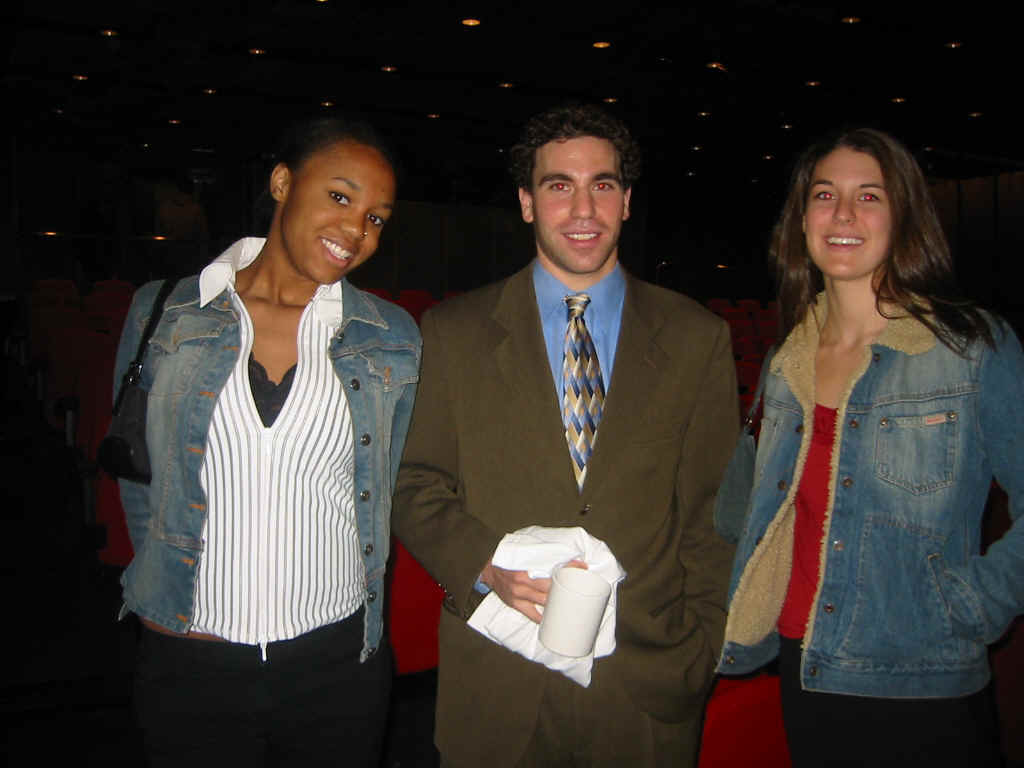
Amie and E.J.
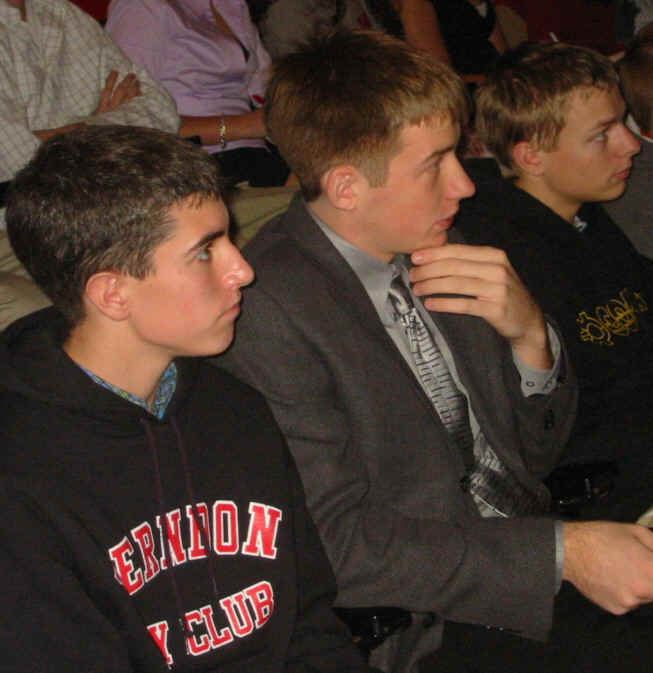
Andrew (center)- The July 1st, 2003 Washington Post article "Whoa Canada" points out that while the U.S. is a nation based on ideals and documents, Canada is not. So my question is, what does it mean to be a Canadian? Answer- It basically is not that much different than being an American. With our interlocking ideas, we are about the same.
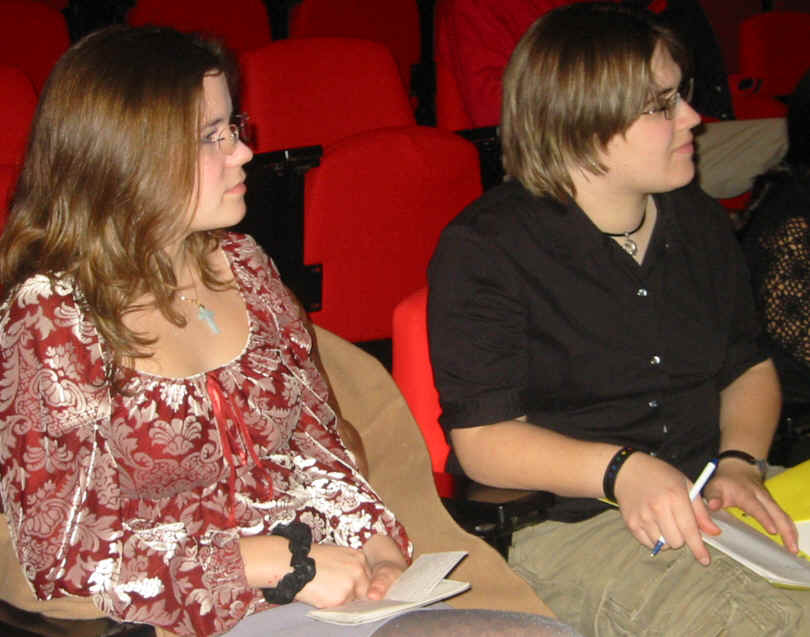
Mikelyn- Do you think that Canadian news is less violent and depressing than American news and if so, are Canadians still well-informed about current events? Answer- I don't think there is a big difference. There may be more sensationalism in American local news, but lots of bad news is reported in Canada.
Amy- Recently two Canadians were killed when their vehicle ran over a land mine in Afghanistan. According to the November 13th cover story in The Economist magazine, the vehicle was twenty years old and unarmored. In light of the war on terror and the condition of such vehicles and your military equipment in general, are there any plans to increase your defense spending? Answer- The U.S. and Canada have a very highly integrated military. But the defense spending will be up to the new Prime Minister.
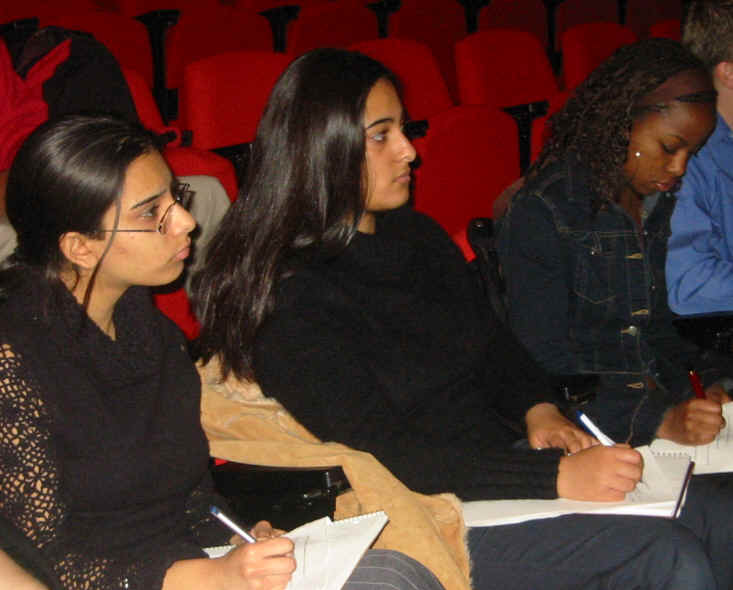
Kiren- What are some changes in U.S. foreign policy you would like to see take place? Answer- I would like to see more of an emphasis on ending AIDS and poverty in Africa and anything that would help stop the killings in the Middle East.
Shruti- Why didn't Canada join the U.S. in the "Coalition of the Willing" and fight against Iraq last spring?
Natasha- More Canadians move to the U.S. every year than Americans moving to Canada. Why do you think this is? Answer- For different personal reasons, more employment opportunities, for example a doctor in Canada with a state-controlled health care system may make $100,000 a year, but in the U.S. with a private practice that same doctor may make much more than that. Also the weather is cold in Canada, that probably makes people want to move south.
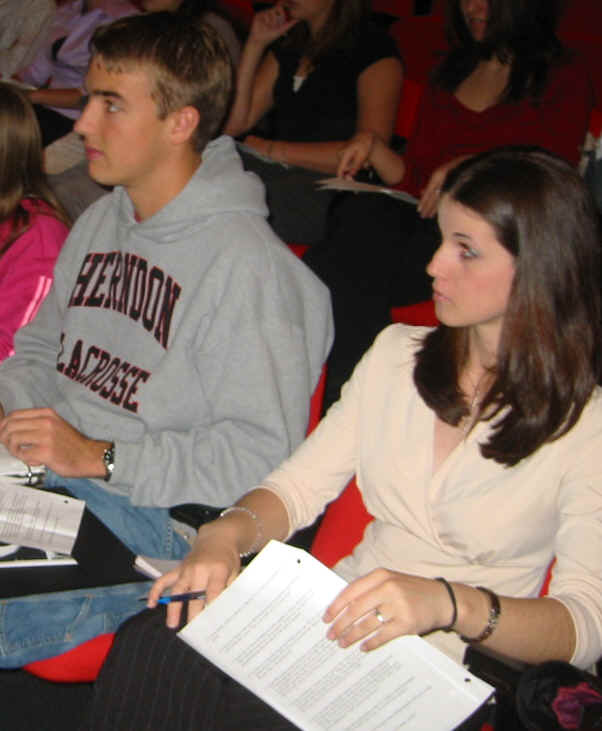
Andrew- Do you think that if the U.S. had not promoted the "Melting Pot" philosophy and just left society to take its own course as Canada did, would the U.S. be a less violent society? Answer- I guess it depends on the different situations people are in. It's hard to say.
Kim- Canadians own about the same number of guns as Americans. Why do you think Canada has fewer gun-related crimes?
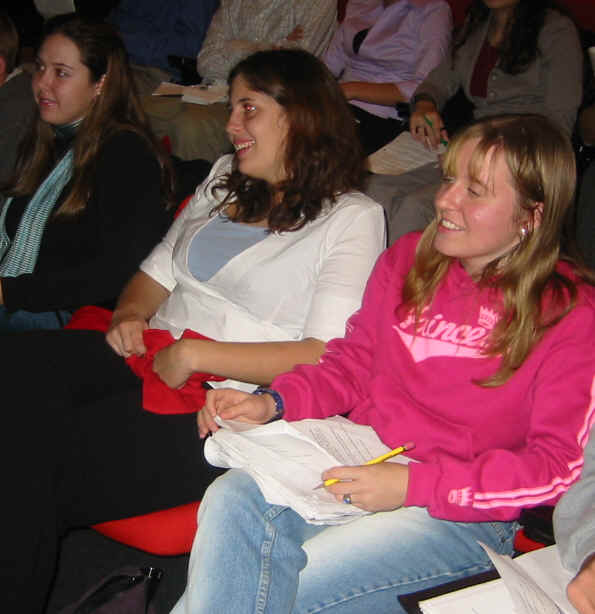
Cate- In the October, 2003 cover story on Canada in The Economist magazine, it mentioned that Canada has legislation to legalize gay marriage, decriminalize marijuana and in a documentary we saw a Windsor, Ontario policeman discuss why they allow prostitution. Do you think Canada is a "less moral" nation than the U.S.?
Catherine- Being a Canadian who lives in America, more specifically D.C, which at one point had the highest murder rate in this country, are you afraid when you walk down the street? Answer- I try to use my street-smarts. One difference would be if I was getting mugged in Canada, I would be more afraid of being stabbed rather than shot which is what I would be afraid of here.
Larissa- What American do you think Canadians most admire and why? Answer- Many Canadians admire Secretary of State Colin Powell and former Secretary of State Madeline Albright.

Javed (left)- Does your country view health care as a right people are born with? Answer- Having health care provided by the state makes one less thing to think about whereas in the U.S. you have to purchase private coverage. Of course a wealthy person in Canada may find our system not as efficient as yours, but someone that is not wealthy may feel that our system is great.
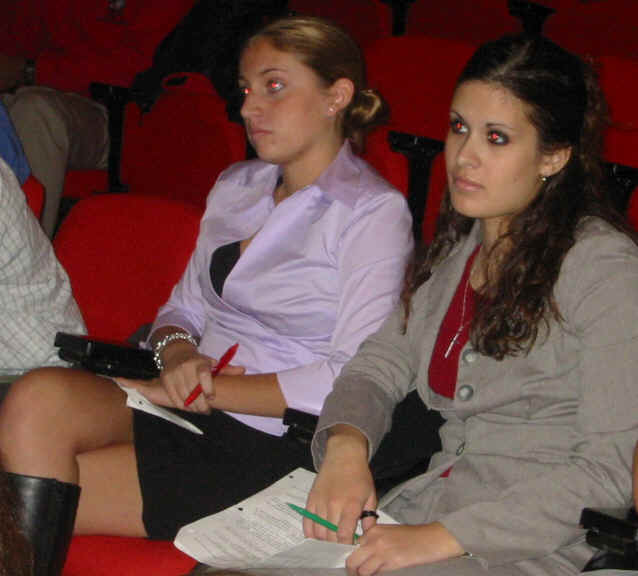
Mary (right)- Regarding the Safe Injection Sites in Canada, is it legal to shoot up if people are caught outside those sites?

Casey- What is the biggest stereotype Canadians have about Americans? Answer- Everyone is different, but mine is that you all act like cowboys and movie stars.
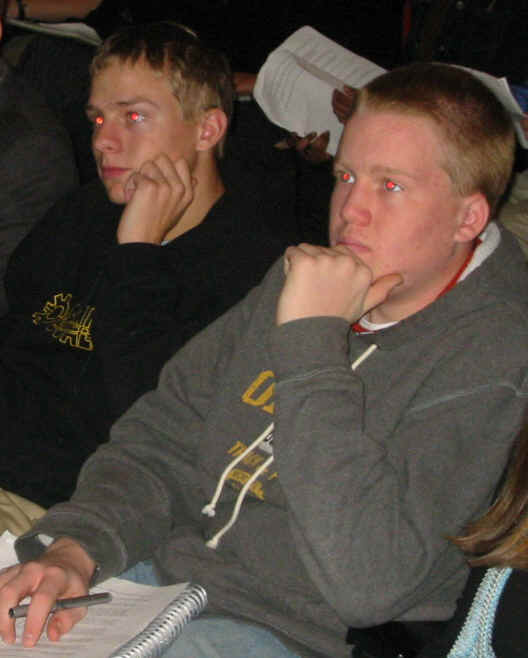
Greg- Canada is characterized by a low murder rate. Is there a higher crime rate in other things such as robbery and assault? Answer- No, there is no difference.
Bruce- Since you know it is illegal for American to buy Canadian medicine, will you try to stop this from taking place? Answer- It is up to American to stop it. If Americans want to keep buying it, Canadians will keep selling it.
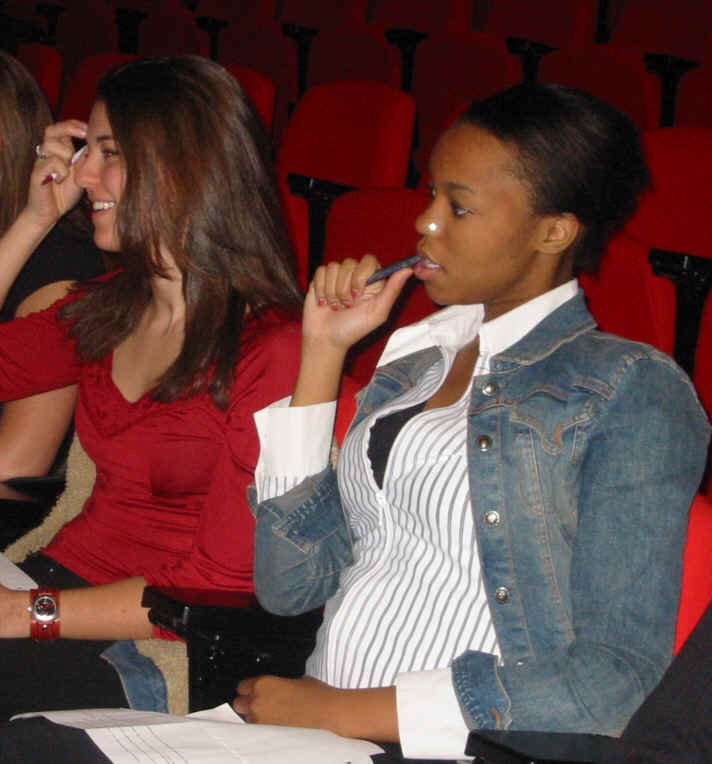
E.J.- With your public health care, environmental protection and lower crime rate, do Canadians think they are a "better" nation than the U.S.? Answer- No, everything is situational and with different backgrounds each person will form a unique idea depending on their personal details.
Amie- Canada does not seem to have the racial tension that the U.S. does. Why do you think this is the case? Answer- Canada did not have slavery and we don't discriminate about who we let emigrate into this nation. We also don't have the same border problems like the U.S. does with Mexico. There is racial tension in Canada but it's not as bad as the U.S.

Ugo- It seems like the U.S. is losing friends around the world. How are Canada's relations with the rest of the world and is there a specific country that you do not get along with? Answer- We have some of the same problems with certain nations that the U.S. has, but I can't name a specific nation.